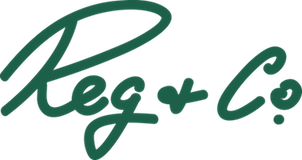Introduction
Finding commercial partners or sponsors is undoubtedly challenging, but the process is neither scientific nor intellectually complex. Rather, it is one that requires resilience, understanding, rigor, and tenacity. From conducting thorough research to managing partner relationships, each aspect must be performed with the utmost professionalism and focus.
Nowadays, industry trends point towards a more holistic approach, where companies seek partners to heighten brand exposure and get internal and external engagement, create brand association, a platform for PR, access to ambassadors, in normal times having a platform for entertaining. Having a well-crafted and unique plan that shows feasible opportunities is crucial to appeal to your potential partners with the flexibility of packages on offer to ensure you can tailor
the offer to achieve their specific objectives.
Designed to provide an overview of the recommended process; this guide highlights key areas of consideration that can help you to start the process and hopefully find the right sponsors. Understand that the task is not so straightforward and that even high-profile rights holders find it challenging. However, with the proper planning measures in place, you will be able to forge excellent working relationships with new partners who will help achieve your ambitions
financial or otherwise.
Preparing
Before you get started with the sponsorship process, you need to prepare a well-crafted strategy. Understand the rights and benefits that you can offer, and how to communicate this. Companies are on the lookout for creative and unique ideas and opportunities to help them achieve their objectives, so it is important to capitalise on these.
When reaching out to sponsors, it is important to show them that you understand their brand or organisation and have the audience or platform to help them achieve their business objectives. Imagine yourself as the sponsor and ask yourself: How can your sponsorship offer benefit their business and contribute to their marketing plans?
Once you come up with pertinent information, you can proceed to create your sales material. Take the time to make it visually appealing and informative yet concise. Avoid putting in too much information and make your proposal straightforward as companies are only interested in the unique things you can offer.
Prospecting
The next step involves identifying potential sponsors, which you can do by looking at resources like companies’ marketing publications, sponsorship publications, and websites, or attending conferences and associations. Doing your due diligence with research will ensure you choose the right sponsors to engage with, which are more likely to be interested in the offer you have created.
When selecting potential sponsors, look out for companies that align with your business's values or goals. It will be easier to establish a relationship with brands that link with your property or business. Take your time exploring the sponsorship landscape to look at a company’s pre-existing partnerships or determine the sectors where you can offer the most benefit in.
Ultimately, your goal is to create a pipeline of potential sponsors that you want to work with. This will serve as an official database that you will regularly update to maintain your contacts and ensure that you have a strong network.
Approach
After identifying your potential sponsors, you will now have to think of the best way to approach the company. The traditional direct approach of calling to propose a meeting * with a representative and pitching your offer continues to be effective as it helps facilitate communication. Make sure to emphasise how your proposal can help their business. (* increasingly difficult with reaching decision-makers working from home and not being able to facilitate face to face meetings, but an online meeting works just as well.
Companies may also enlist the help of a sponsorship agency or PR agency, so make sure to reach out to the agency representative responsible for handling sponsorship requests. In other cases, you may have to submit the proposal online due to the high volume of requests received by a brand.
To support the sales process, you can come up with ways to gain public attention. A press launch can garner the attention of prospective clients and agencies and help you build your network. Launching a website will also help promote your partnerships with other brands in hopes of attracting more sponsors. Make use of case studies and testimonials to show the value that you can offer to sponsors.
If you feel that you lack the experience or skill to manage the sales process, you can consider appointing a sales agency to help you. Look for an agency with credible experience and one that specialises in your field, and be clear with your expectations. Sales agencies can be more hands-on or hands-off if you prefer, so make sure to stipulate your requirements clearly in your
agreement.
Presenting
When pitching to your potential sponsors, it is important to maintain professionalism while still creating an impact. Present your unique selling point (USP) that helps you stand out from other interested businesses, and communicate this clearly to capture your sponsor’s attention. Whenever possible, make use of visual aids to bring the proposition to life, good design and impactful imagery really helps.
Similar to your sales material, your presentation should be concise and straightforward. Stick to the important and relevant points that they are interested in hearing, and be flexible with your offer to accommodate a sponsor’s needs. Illustrate a case study with a brand you have worked with in the past to show your credibility and value, and listen to all the questions raised, so you have a better idea of what your sponsor is looking for.
Negotiating
The negotiation process allows you and your potential sponsor to come up with a mutually beneficial agreement. It is important to be flexible in making possible changes with your offer to show your flexibility, but you must also be transparent on what you can and cannot concede on. Think about how much you can commit to the brand and the resources you have to support the partnership.
Once that is finalised, you can put your agreement into writing. Make sure to put all the pertinent terms and details to protect both parties and ensure that everyone understands the implications of signing the document. A good sponsorship contract protects you and the partner and provides a framework to work from to deliver a compelling and beneficial campaign.
Servicing
After securing a deal with your sponsor, you will need to make an effort to manage your relationship to maintain the partnership. Hold regular meetings and keep them updated, alerting them of opportunities that may benefit their business. The most important thing is to constantly engage with them and innovate your offers to show your value as a partner.
Reg&Co
With over 25 years of experience in the sponsorship industry, we deliver commercial, creative solutions from large scale organisations to SMEs. The companies we work with range from clients in the transport sector to visitor attractions, from high street retail brands to the food and drink industry, from broadcasting to the charitable sector. We work with clients whose visions we believe in and whose values we respect. We bring a dynamic, insightful and flexible approach to the briefs we are given and have a reputation of using our expertise to deliver great results whilst being a fun team to work with. We are members of ESA (European Sponsorship Association)

